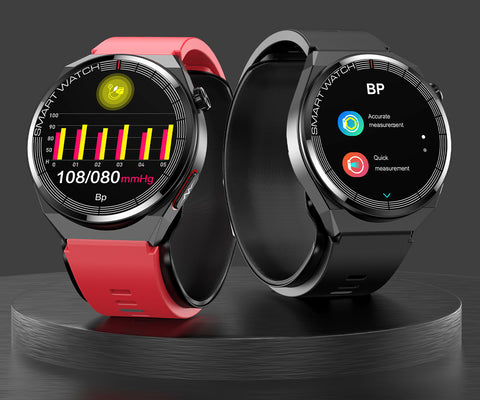Smart Band Watch
Those with high energy levels always seem to be full of vitality and zest, approaching everything with boundless enthusiasm.
However, some individuals, even after getting sufficient sleep, find themselves constantly struggling with fatigue and lack of interest in everything.
So, what is the root cause of this discrepancy?
01. "Unable to Find Reasons to Be Happy"
In reality, energy, much like muscles, can be cultivated through deliberate efforts. "Maintaining energy" is a challenge that everyone must address.
In a YouTube video titled "Why are you always tired," with over 6 million views, the author categorizes reasons for fatigue into physiological and psychological aspects.
Physiologically, regular sleep patterns, consistent weekly exercise, and adequate daily hydration can genuinely help break free from the state of "fatigue."
Scientific evidence suggests that engaging in high-intensity exercise for at least 100 minutes per week can significantly improve cardiovascular function, thus raising the daily limit of energy.
On the psychological side, issues are more challenging to solve and often overlooked.
An interesting question once posed was about people who, after driving home, sit in their cars quietly for an extended period even after reaching their destination.
The responses varied widely, describing individuals facing immense mid-life stress, reflecting on life's challenges, or experiencing anxiety about goals and careers. In essence, the common theme was exhaustion.
This fatigue is mostly psychological, a comprehensive weariness brought about by mental fatigue rather than physical tiredness.
It seems that escaping the fatigue of life is a rare feat.
Living one day at a time, wanting to change but lacking the ability to persist, all plans eventually fizzle out.
In this age of seeking efficiency in everything, people yearn to change their circumstances but also desire to expedite the process.
Various "quick fixes" abound. However, when desires remain unfulfilled, individuals often neglect to consider the reasons, finding themselves trapped in a cycle of melancholy and self-doubt.
02. Cognitive Overload
In Maslow's hierarchy of needs, needs are divided into five layers: physiological, safety, social, esteem, and self-actualization, presented in the form of a pyramid.
Among them, physiological needs are the most basic and foundational, becoming progressively challenging to achieve as one ascends the pyramid. Simultaneously, achieving higher-level needs brings more prolonged satisfaction.
When feeling tired and unable to find joy, it may be because social or esteem needs are not met, or existing life and work cannot fulfill the "self-actualization needs."
A report from Harvard Business School indicates that when we exhibit generosity, enthusiasm, and friendliness towards others, we receive powerful emotional rewards, surpassing the happiness derived from most other actions.
So, when you are unhappy, consider seeking help externally or offering assistance within your capabilities to others. In this way, the improvement of emotional well-being may come from the satisfaction of social and esteem needs.
However, some issues cannot be resolved solely by external exploration. The most crucial aspect is internal harmony.
Often, the hindrance to self-fulfillment lies within ourselves.
If the brain is compared to a computer, waking up each day is like rebooting the system, the moment when we should be most energetic and alert.
However, in a continuous work state, weariness and panic about unfinished tasks invade our brain's memory from the moment it boots up.
"Always worried about how others perceive oneself" and "overly concerned with negative evaluations" – these emotions, combined, occupy our cognitive resources, causing "cognitive overload."
To allow our brains to operate quickly and unburdened, we need to regularly "cleanse" our minds, delete junk files, and consciously plan "our consciousness."
03. Seven Steps to Maintain Your Own Vitality
"It is unrealistic to expect to maintain a state of high energy all day," says Carson Tate, the author of "Work Simply: Embracing the Power of Your Personal Productivity Style." "You wouldn't believe you could briskly walk for eight hours straight, so don't expect yourself to stay focused or engage in strategic thinking for such an extended period."
Therefore, we must learn to adjust appropriately, refuse to "be pushed by life," and find more efficient ways to alleviate psychological and physiological fatigue.










